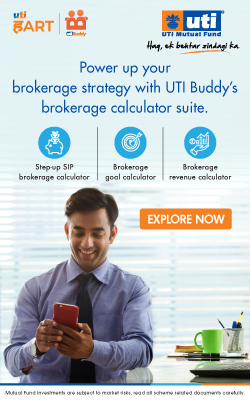In the post-crisis business environment, an advisor must demonstrate a different set of attributes and motivational strengths to succeed. For example, in today’s environment, persuasiveness and gregariousness have become less predictive of success. Instead, problem-solving and a thoughtful, conscientious approach to relationship development and management seem to work better with today’s high-net-worth clients.
A whitepaper on ‘The Conscientious Advisor’ by WealthManagement.com shows important trends in the archetype of a successful advisor. For instance, current top performers appear to score higher on ‘conscientiousness-related’ traits such as:
- Abstract Reasoning: These advisors are good problem solvers and have the ability to understand complex problems.
- Thoroughness: These advisors tend to take ownership of jobs and tasks assigned to them. They are likely to be consistent in their follow-through with clients, the goal being to ensure problems are assessed correctly and solutions are on point.
- Cautiousness: These advisors are thoughtful. They are inclined to make decisions carefully and think through relevant facts and alternatives. They consider the implications of each alternative.
- Scepticism: These advisors question motives, which helps them understand the conscious and subconscious issues their prospective and current clients are facing.
- Structure and Attention to Detail: These advisors are more structured, with high attention to detail that facilitates their consistent and diligent follow-through on the decisions made between them and their clients. This is the key to building trust.
In the post-crisis environment, the study indicates that today’s successful advisors tend to take a well-thought-out, consultative and conscientious approach to developing and closing deals and retaining business with high-net-worth clients.
Successful advisors typically:
- Exhibit self-confidence to interact effectively with high-net-worth individuals. They are likely to ask the right questions and at the appropriate time and educate their clients. They understand that words matter and therefore tend to engage in extensive pre-call planning by scripting their questions. They also understand the need for prospective clients to feel they have ownership of identifying and resolving their own financial issues with the advisor as their trusted partner.
- Use a straightforward but adaptive communication style and active listening skills to demonstrate understanding. These advisors are very skilled at relevant storytelling to gain commitment, by allowing the client to see themselves in the story.
- Enjoy the persuasive nature of their role and exercise empathy. They articulate real value and share opinions. In essence, they demonstrate that they care and are confident by providing insightful comments. They are not afraid to take a position and explain their point of view.
- Are willing to ask for business at the appropriate time in the process. They build the business case and identify the pros and cons of the alternatives then propose a reasonable commitment to working together.
- Exercise self-discipline, thoroughness and follow-through at every stage of the client-advisor relationship. They provide a window into what the experience will be like for a client from the very first interaction.
In addition to having the attributes, the successful advisor must exhibit a high level of conceptual thinking to be able to obtain, synthesize and use technical investment, economic, tax and wealth planning information from a variety of sources. This involves:
- Staying current with market trends, industry developments and competitor offerings and fee structures. They must develop and employ a vast network of information resources in order to be successful.
- Obtaining specific and often sensitive information regarding clients’ financial and personal situation and goals.
- Sifting through this information to better understand a client’s needs and in some cases, help the client articulate these needs.
- Reaching conclusions and making recommendations that are logical, pragmatic and compelling.
Additionally, the study found that successful advisors set their own goals and see them through to timely completion without the need for excessive supervision or controls. They value input, direction and coaching from experts in efficiency and effectiveness but are self-motivated and operate independently.
How does a conscientious advisor work with clients?
A conscientious advisor confidently builds a strong positive image of his or her own character and expertise, as well as that of the firm. He or she does so not only with prospective clients but with the intermediaries—such as accountants, lawyers and other advisors—who serve them.
In working with prospects and clients, the conscientious advisor shares thoughts and listens carefully as a client describes his or her concerns and desires and then engages in dialogue to help the client uncover issues that underpin those concerns. In this process, which can extend over a period of weeks, months, or years, an advisor displays empathy and demonstrates to the client that he or she understands the concerns and needs, and will work toward the client’s best interest.
To that end, the conscientious advisor must conduct research regarding his or her clients’ needs, develop a logical strategy that will address those needs, and articulate that strategy clearly, concisely and persuasively. Persuasiveness is far more than merely being assertive and persistent; the advisor must demonstrate to the client that he or she is a competent, credible and trustworthy partner capable of managing substantial wealth.
The business model revolves around three phases:
- The discovery phase. This phase of the relationship requires a combination of qualities, including both empathy and a sense of urgency.
- The transition, or on boarding, phase. This phase is intended to introduce the firm and its philosophy and processes to the client.
- Relationship management: This phase shifts the relationship’s focus from sales to service.
To conclude, conscientious advisors outperform their peers. Becoming a conscientious advisor requires attention to the details of both practice management and client interaction. Advisors’ actions become their personal brand, and many underestimate the power of developing efficient and effective processes and skills.
Reproduced verbatim from the whitepaper ‘The Conscientious Advisors, A New Paradigm in Wealth Management Sales’
Click here to read the whitepaper
Meta tags: business development, advisors, Conscientious Advisors, financial planning, practice management








